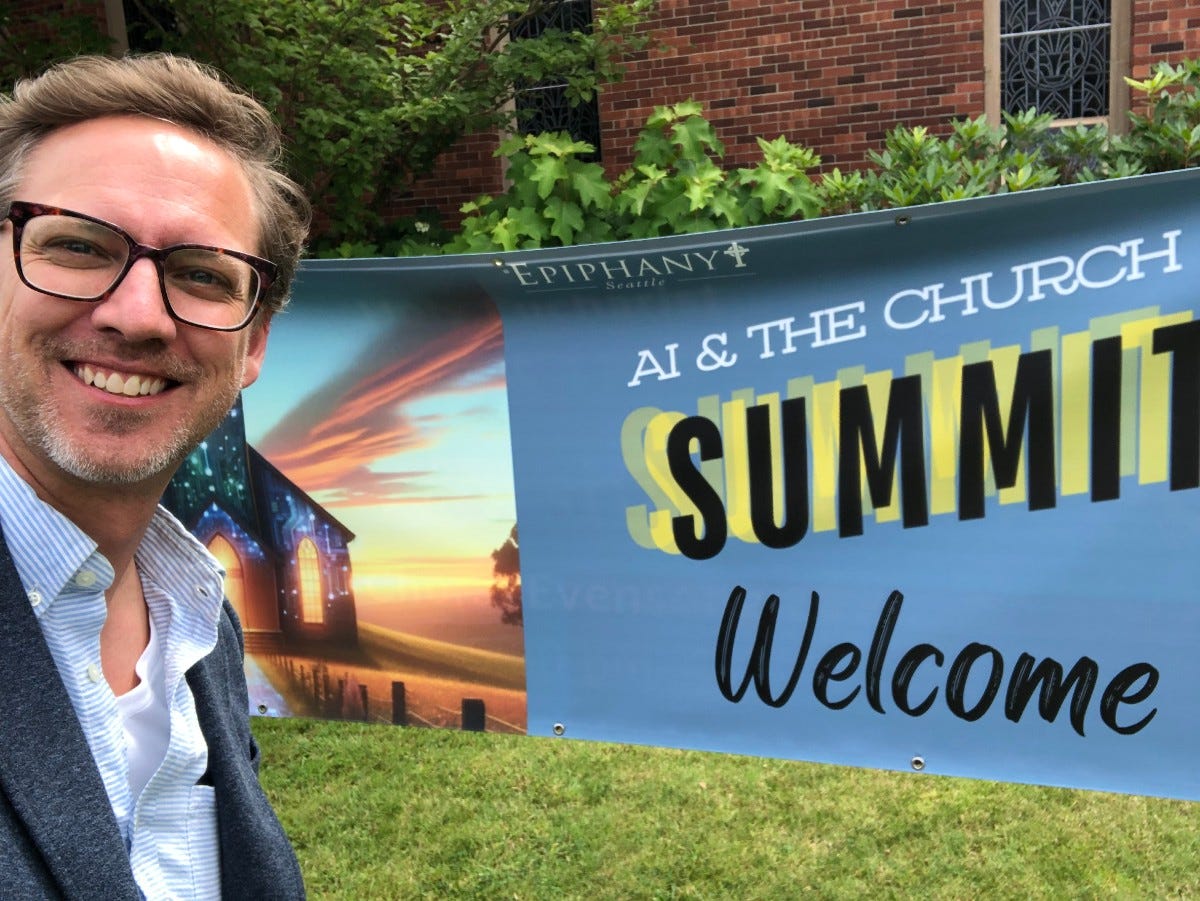AI & the Church Summit
Highlights from the Seattle event.
This past week, I attended the “AI & the Church Summit” in Seattle. I joined a panel on the final day to talk about some of the themes of the conference.
Paolo Benanti
I was most excited to hear from Paolo Benanti…




